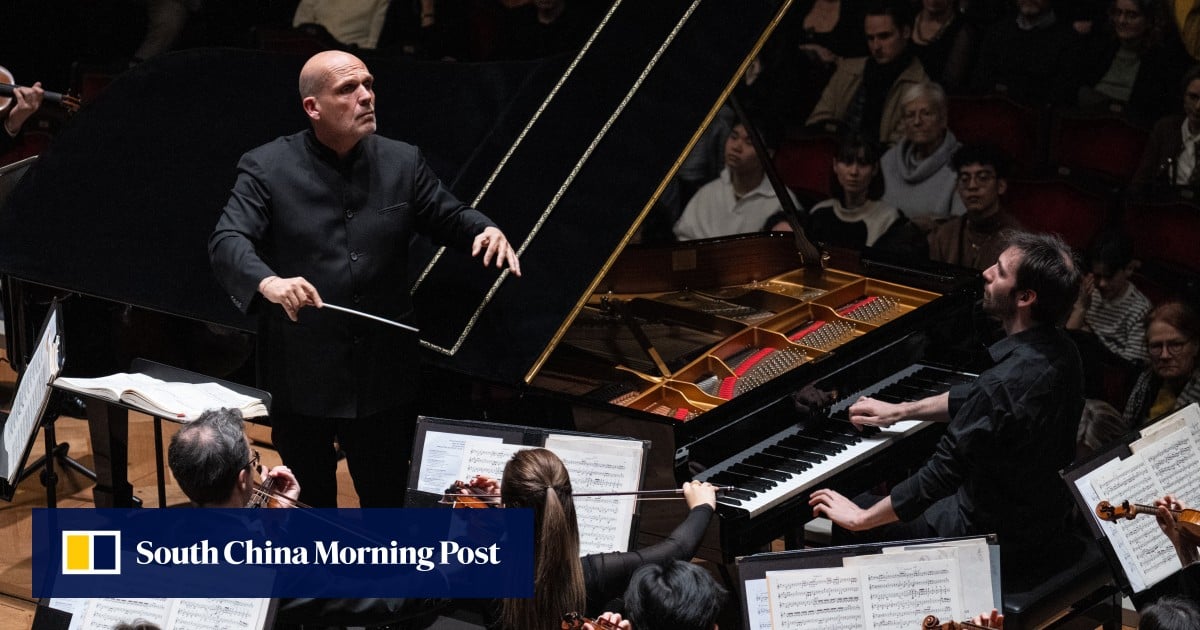This European tour, the longest in the orchestra’s history, was now being billed as part of its 50th anniversary celebrations.
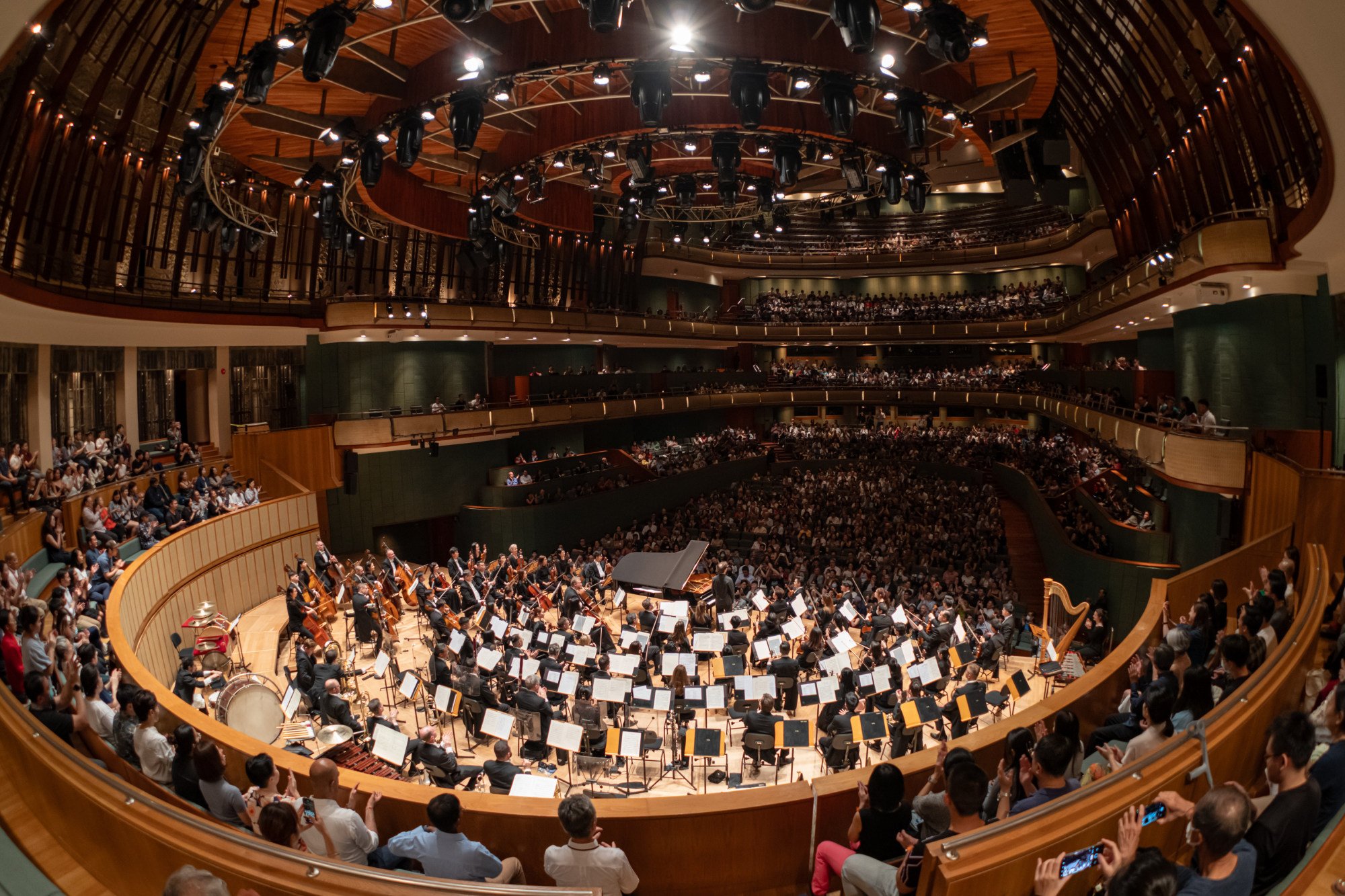
The plan was to begin with a warm-up performance in Singapore, from where the orchestra would fly to Frankfurt, Germany, and then make its way to Dresden for the first European concert. During the Valentine’s Day meeting, agents told Chan it looked as if Lufthansa, which has been having a season of industrial discontent, would not be on strike the following week. That was Wednesday.
Two days later, Chan discovered she had Covid-19 – the same night the orchestra played the first half of its touring programme at the Hong Kong Cultural Centre for the (full-house) enjoyment of its domestic audience.
‘Intimate recital’: cello prodigy Zlatomir Fung on his Hong Kong debut
‘Intimate recital’: cello prodigy Zlatomir Fung on his Hong Kong debut
Backstage that night, Lo was glowing.
“I wanted to compose a piece that embodied something eager and energetic, but not overly intense,” he said. As a fan of film director Tim Burton, he had hoped to infuse it with witty animation.
“Asterismal” refers to constellations: the heavenly patterns humans see in scattered stars. “I thought, ‘Oh, let’s do a dance’.”
Why this young Hong Kong-born conductor chose to build his career in Seoul
Why this young Hong Kong-born conductor chose to build his career in Seoul
Nearby, huge double-bass cases lined the corridor like storm troopers, on standby for deployment to the airport.
Early that Monday morning, Hong Kong time, Chan received a text from the European agent saying that Lufthansa’s ground staff had called a strike. By this time, she was testing negative for Covid-19, so she flew to Singapore, where the orchestra was performing the following Tuesday night.
As seats became available on other airlines, splinters of the orchestra flew out of Asia into various European airports: London, Helsinki, Paris and Zurich. Eventually, these fragments coalesced in Berlin, where coaches had been provided.
If the strike had affected Lufthansa cargo, which was handling the orchestral instruments, this story probably would not have happened.
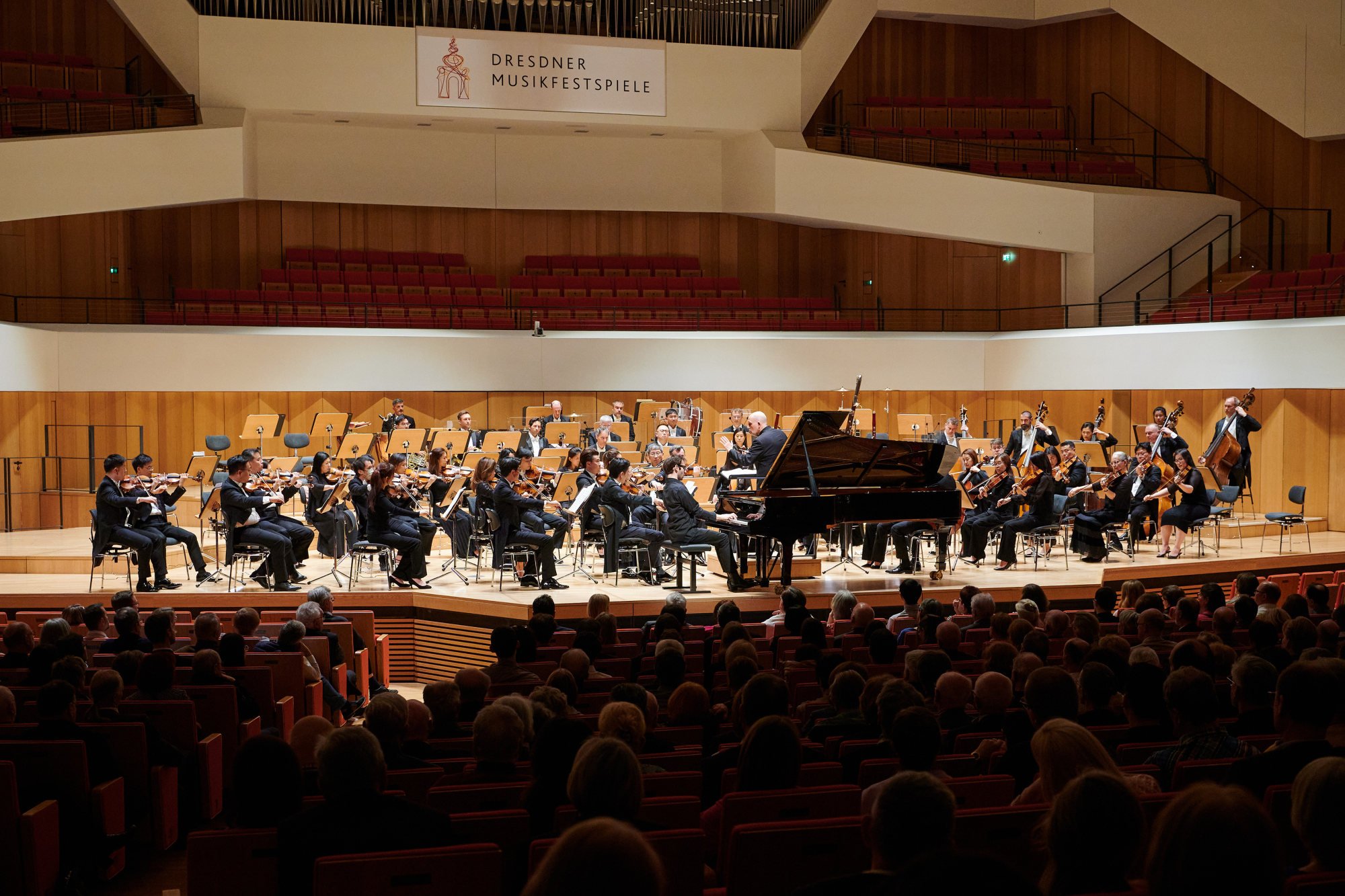
It is true some personal luggage went AWOL and at least one owner wasn’t reunited with his case until Toulouse, the third city of the tour. Luckily, the men’s white-tie performance apparel had travelled as cargo along with the instruments.
By the Friday night, everyone had completed their global choreography and checked into the Moxy Dresden Neustadt hotel, opposite Dresden-Neustadt’s railway station. Then the real work began.
Disabuse yourself of any notion that touring with HK Phil is glamorous. It is a thrilling, enervating, wonderful, infuriating experience, but the Moxy’s rooms, for instance, have no kettles, no slippers, no robes, no fridges. Travelling as a musical collective can also be oddly dehumanising.
“Bus one – first violins and cellos!” yells Chan at an airport exit; and people often introduce themselves as their instrument (Yu-po – oboe). They are jet-lagged, they are performing for an exacting maestro at a dress rehearsal and again, a few hours later, for punters in a hall with unfamiliar acoustics.
It is like a grown-up version of a school trip, with frequent exams thrown in.
We play this concert for peace
Announcer before HK Phil’s Dresden concert begins
Inside, at noon, a small cohort from Hong Kong gathers to hear the organ service. Nearby, other musicians are visiting the Old Masters Picture Gallery and the Green Vault museum.
Across the city, Dennis Wu, HK Phil’s director of marketing, is on a pilgrimage to the Old Catholic Cemetery, where Carl Maria von Weber, composer of Der Freischütz, rests.
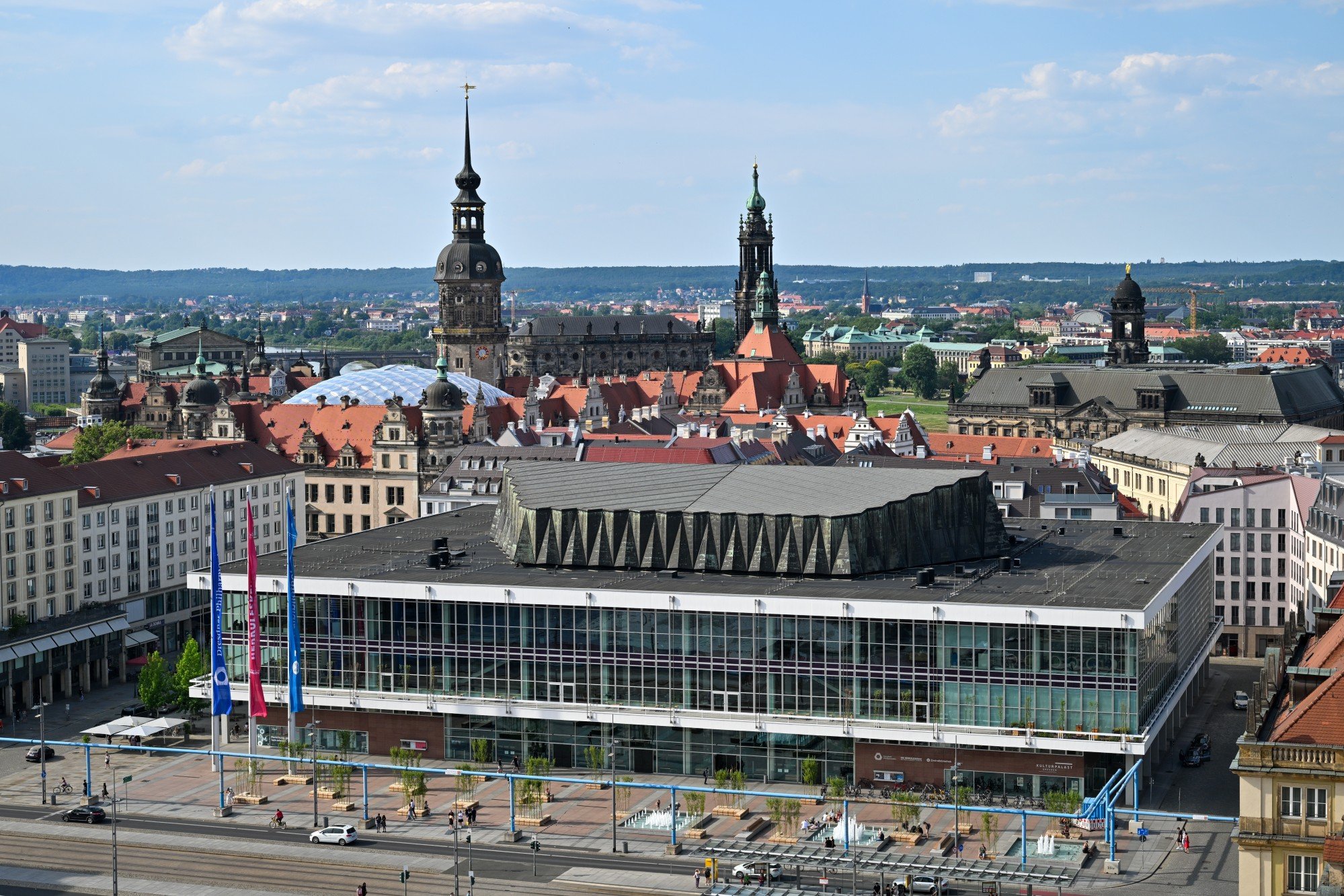
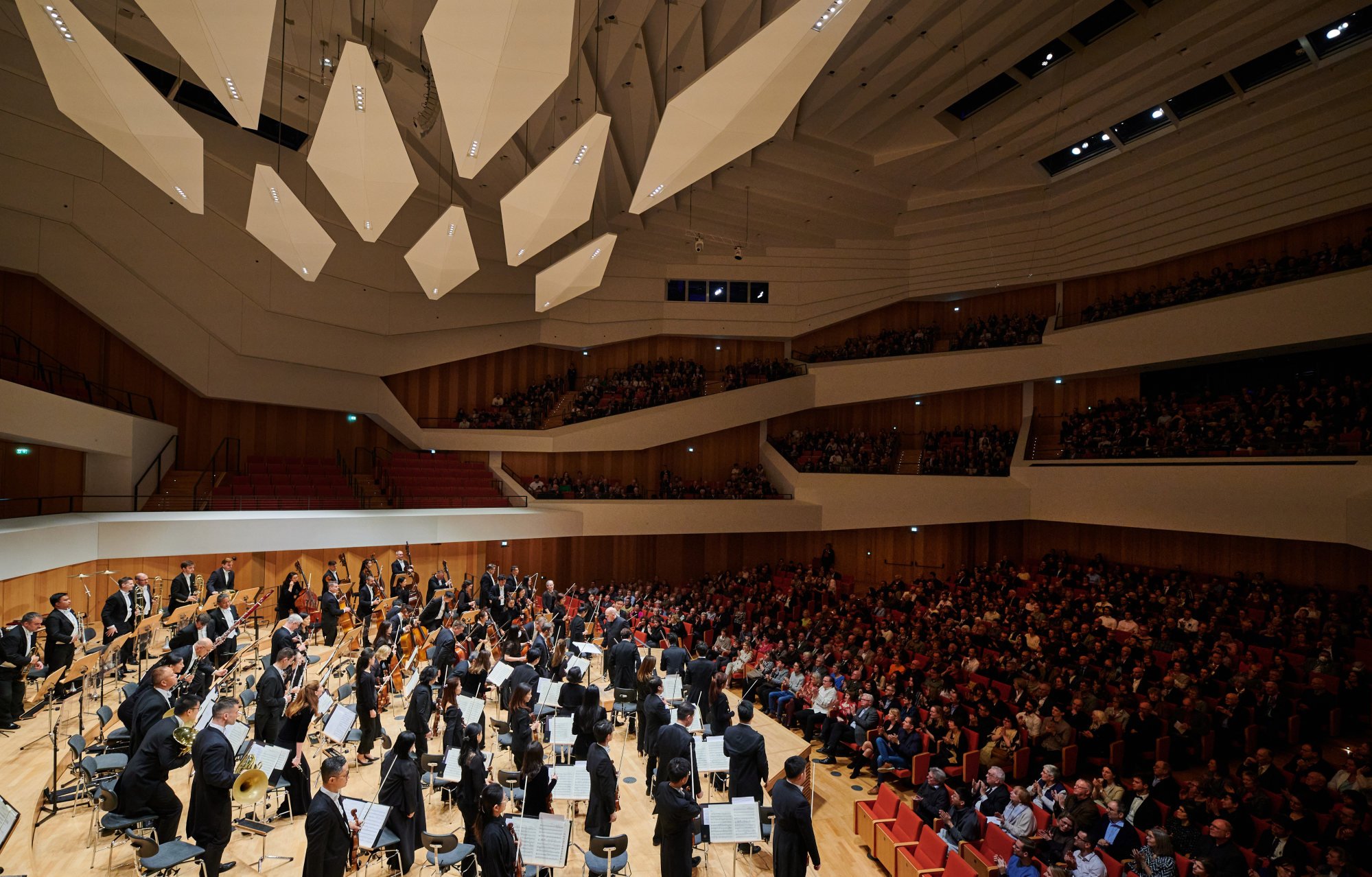
At 2.15pm, the coaches leave the Moxy for a rehearsal at the Kulturpalast, built in 1969, when Dresden was part of the German Democratic Republic (East Germany), and renovated in 2017.
The concert hall will be familiar to viewers of the 2022 film Tár: it is where the eponymous conductor played by Cate Blanchett has a musical meltdown and flings her replacement from the podium. “Give me some eyes!” she yells afterwards at the stunned orchestra, (supposedly the Berlin Philharmonic but actually the Dresden Philharmonic).
This isn’t Jaap van Zweden’s style. It is true that from certain angles he can look a bit like Voldemort, and when he is vexed by an interloper – such as a Kulturpalast staffer with a phone (“Miss, are you filming? Are you filming? It’s not allowed”) – the hall holds its breath.
But mostly, he is sufficiently compelling that he has the orchestra’s eyes automatically, as if his baton is yanking their heads towards him by an invisible thread. He makes you listen so intently that the music takes up residence within your head and when he halts it, with a slicing gesture, that silent eviction is a physical shock.
“Last note, again. No. Again.” He is doing two things: tweaking the sound according to the hall’s acoustics and flexing his players’ minds and muscles after their travel exertions.
Hong Kong Philharmonic and Paavo Järvi’s shattering Shostakovich 5
Hong Kong Philharmonic and Paavo Järvi’s shattering Shostakovich 5
They rehearse the Shostakovich, written by the Russian composer in 1945. Dresden had specifically asked for it, and it is the only time it will be played on the entire trip. It is a short piece (27 minutes) but it is rather like carting around a suitcase that includes a bulky outfit you’ll wear just once.
“I have almost no influence,” van Zweden will say about the Shostakovich later. “This CEO sells the tour. I can only say it’s hard doing a lot of work.”
Listening to the rehearsal in the stalls, HK Phil’s CEO, Benedikt Fohr, who is German, says, “Jaap has recorded Shostakovich very well and the audience will know that”.

It is a complicated exercise working out travelling programmes, the pool of popular orchestral pieces being more shallow than one might suppose.
Dresden did not want Mahler’s Symphony No 1, for example, because Kahchun Wong, who is from Singapore and Dresden Philharmonic’s principal guest conductor, was booked to perform it the previous weekend. Singapore, however, apparently did not mind hearing it twice in rapid succession: on February 20 played by HK Phil and on March 1 played by the Singapore Symphony Orchestra.
At 7.30pm, the performance begins.
“We play this concert for peace,” says an announcer in German. The almost full house is highly appreciative. (The reviewer in Der Opernfreund will write: “Jaap’s highly committed conducting and the excellent Hong Kong Philharmonic Orchestra elicited from the complex score all the facets and colours Shostakovich had given the musicians.”)
Afterwards, Fohr arranges pretzels and beer in a room backstage. It is agreed that German audiences are the most musically educated in the world. “They probably came to see what an Asian orchestra looked like and were surprised by the number of Westerners,” says one player.
5 conductors who could be the next HK Phil music director
5 conductors who could be the next HK Phil music director
Queries about how it feels to have a maestro leave, with no replacement in sight, are answered with a shrug. “We’ll probably have a season without a music director and that will be fine,” says someone else.
Sunday, February 25, 9.30am. Dresden airport is deserted. Only one flight is scheduled to leave this morning: HK Phil’s A320 to Zurich, operated by Trade Air, a charter company based in Croatia. Airport security is the most pleasant, apologetic group of bag-checkers you could ever hope to encounter.
It is possible that the airport hires only delightful employees but it is more likely that to travel as an orchestra in Germany is to be clasped within an artistic halo. When a stewardess places violin and woodwind cases into overhead compartments, it is with a tenderness usually reserved for newborn babies.

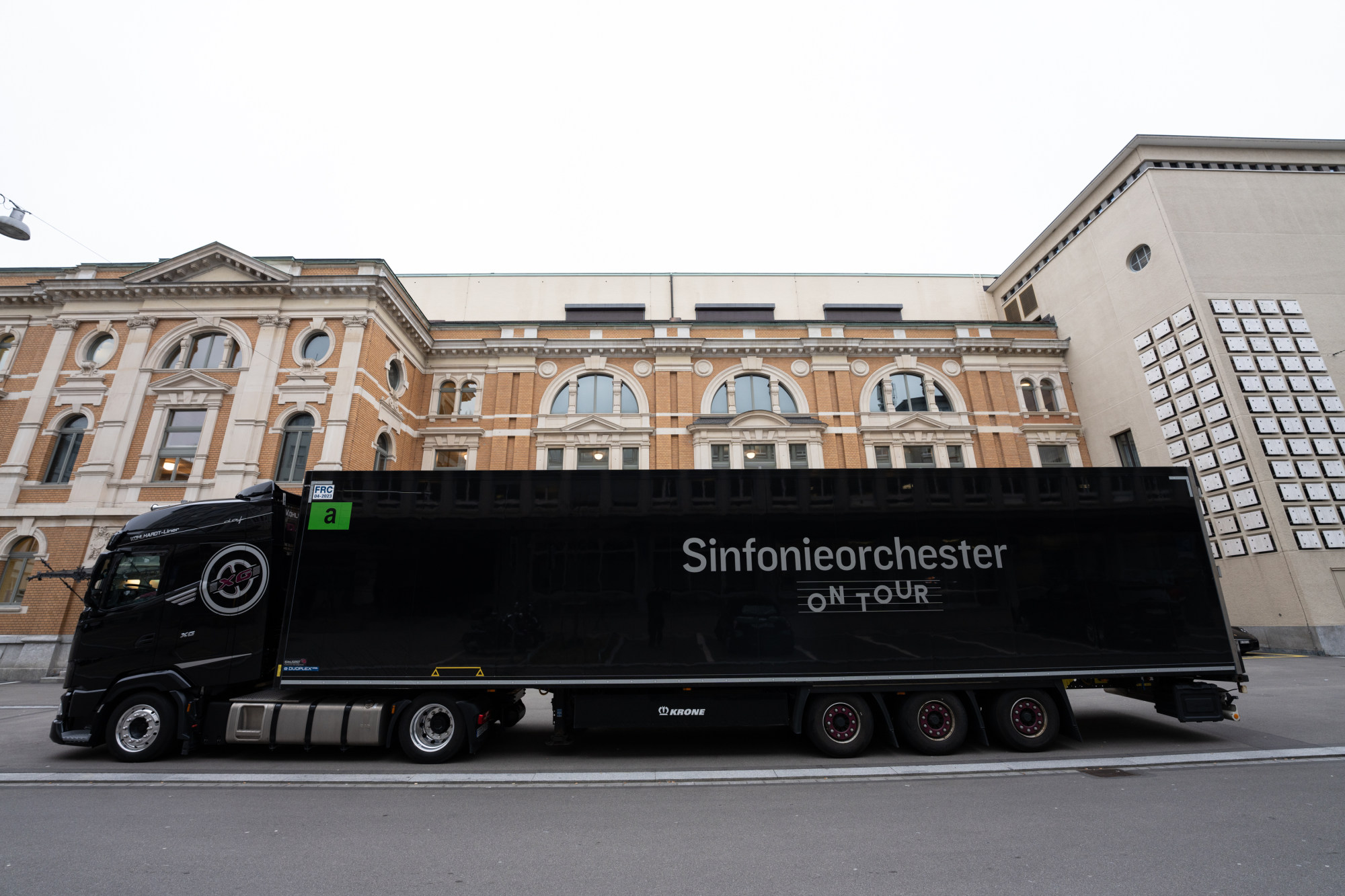
The plane remains on the ground for two hours while Trade Air searches for a Sunday morning technician who can fix a light, smashed by a bird strike on the preceding flight.
Lush cinematic tunes – “Memories”, “Somewhere in Time”, “Over the Rainbow” – pour out of the sound system on a loop. When “Love Story” comes around (again), Dennis Wu, who has never seen the film, remarks that as a student he listened to its theme every morning to learn the difference between a minor 6th interval and a major 6th interval.
By mid-afternoon, the group is checking into the 25hours Hotel Zurich West, which, despite the name, isn’t a love motel. The concert is at the Tonhalle, which was built on the shores of Lake Zurich in the 1890s and is so beautiful, with its organ and chandelier, that the performance will be filmed.
It is also famous for its acoustic quality: “Really bouncy,” warns van Zweden during Monday’s rehearsal.
For me, tonight is more about Hong Kong than classical music
A Swiss ex-Hong Kong resident ahead of HK Phil’s concert in Zurich, Switzerland
The programme is Lo, Beethoven and, appropriately, Brahms, who conducted the concert hall’s opening night in October 1895, and whose portrait is included in a swirly ceiling painting called Composers’ Heaven that also features Bach and Handel.
These days, Camille Tam, the stage and production manager, uses software to plan performers’ exact stage placement at venues, and their schedule is so tight that the packing up starts as each concert begins.
Everything the orchestra travels with must be slotted into 47 cases, carefully placed in sequence within a massive truck, and driven overland through the European night to the next venue.

Across the street, in an establishment called barfly’z, a small group of Swiss ex-Hong Kong residents has gathered to support the concert. (These days, that is refreshing; when the Hong Kong Ballet performed in New York last year, ex-Hongkongers gathered to protest about its government-funded existence.)
“For me, tonight is more about Hong Kong than classical music,” remarks a banker in attendance. There are reminiscences of Saint Sylvester’s Day parties on New Year’s Eve with Sébastian Jacot, a Swiss flautist who started his professional career in 2006 with HK Phil under Edo de Waart – van Zweden’s predecessor and Dutch compatriot – and is now a principal flute at the Berlin Philharmonic.
There is concern that a Monday night performance will mean a low turnout. Gratifyingly, however, it is an almost full, and enthusiastic, house. That morning, the Swiss newspaper Neue Zürcher Zeitung ran a piece praising van Zweden’s 12-year achievement with the orchestra.
There’s no spurned-lover aspect to it – it’s a working relationship
HK Phil musician on players’ view of music director Jaap van Zweden’s impending departure
In fact, the news that he will become director of the Orchestre Philharmonique de Radio France breaks the following day, by which time HK Phil is actually in France, to play Lo, Rachmaninoff and Mahler in Toulouse.
This geographical coincidence seems poignant, although, as one musician puts it, “There’s no spurned-lover aspect to it – it’s a working relationship.”
Covid-19 absences, guest conductors, long-distance commutes in his role as New York Philharmonic’s music director have diluted that relationship. Already van Zweden has shifted his professional GPS: backstage in Toulouse, he remarks to someone who is suggesting a meeting, “With my new orchestra, we can talk about this …”
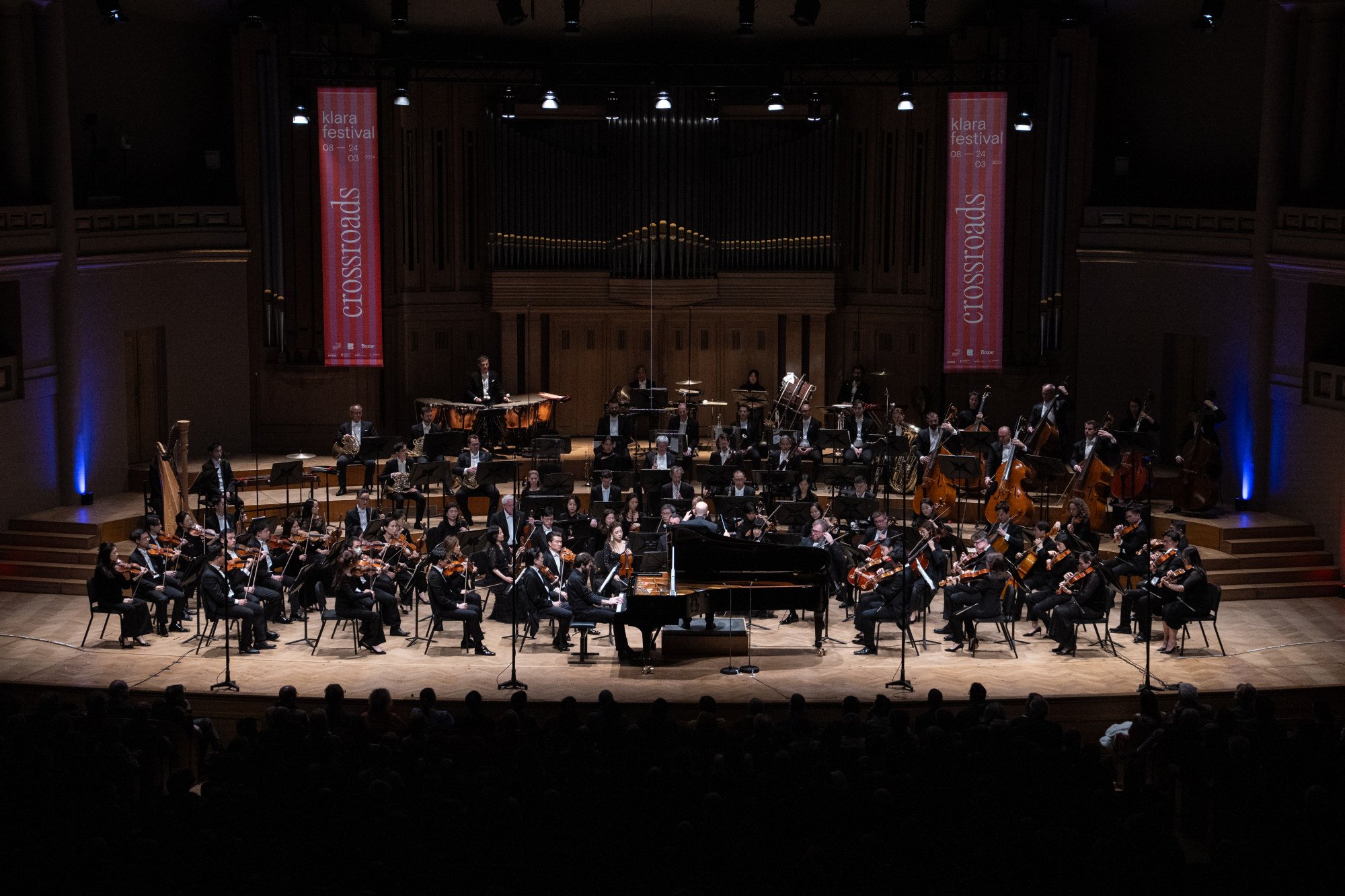
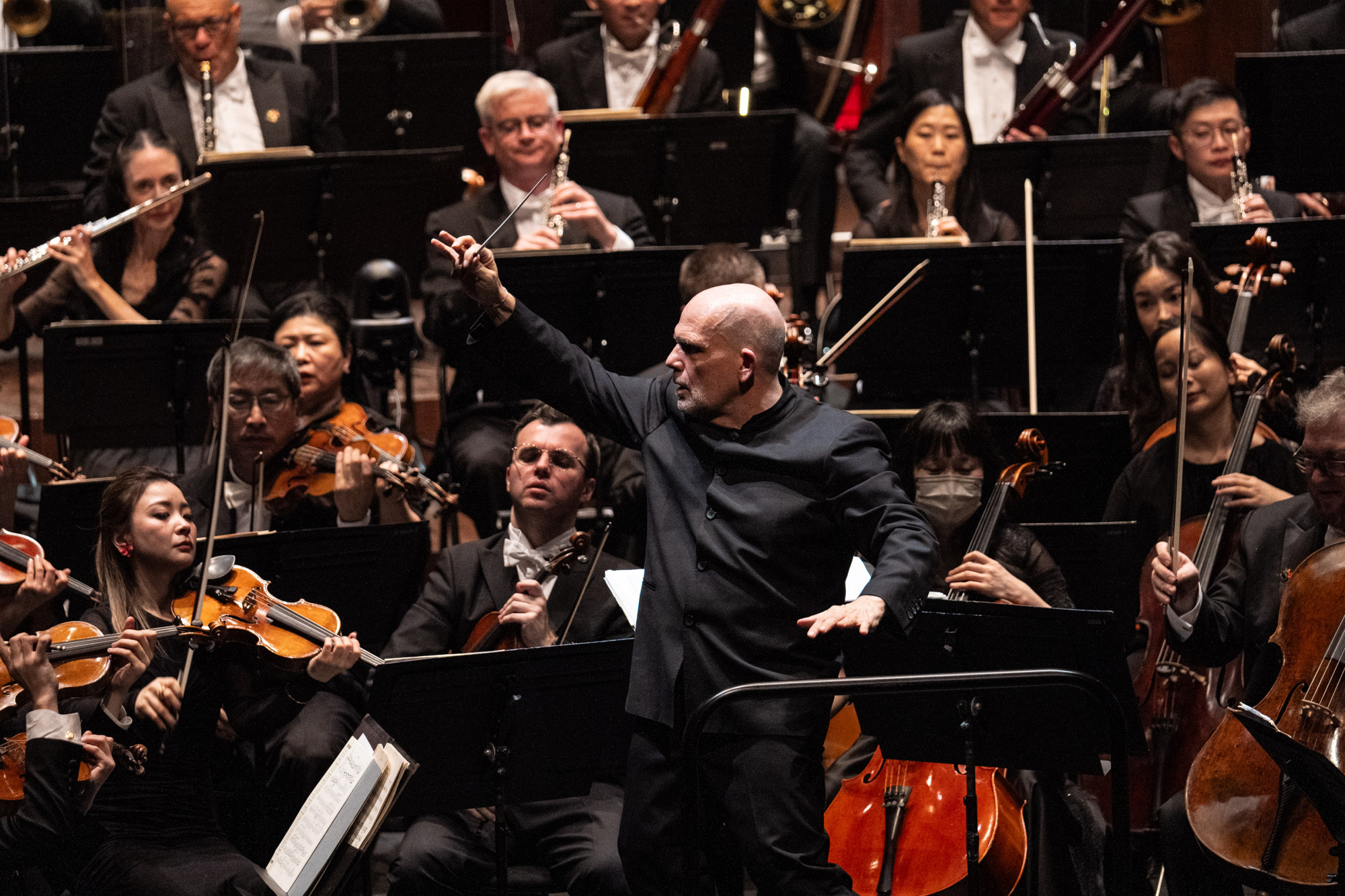
So, is this a farewell-to-Hong-Kong-Philharmonic tour? “Actually not,” says van Zweden in his dressing room before Wednesday’s Toulouse performance. “I’ve some plans to go back with them to Europe, to Amsterdam, in 2025.”
Unprompted, he voices regrets. “It’s very strange – in 2019, as orchestra of the year, that was going to be the moment for us, for years to come. And then came the pandemic. And the momentum was taken.
“Those years when we couldn’t work, those years we could have had incredible moments on tours, an international profile …”
Asked if the momentum returned, he replies, “I would say quite quickly and the orchestra did not lose quality at all.” At least now the tour is finally happening, although, of course, it is tiring for the orchestra to be away for so long.
“I haven’t been home for seven months, apart from one day, so join the club,” he replies, sternly. “They’re very lucky, they are at home 99 per cent of their lives.”
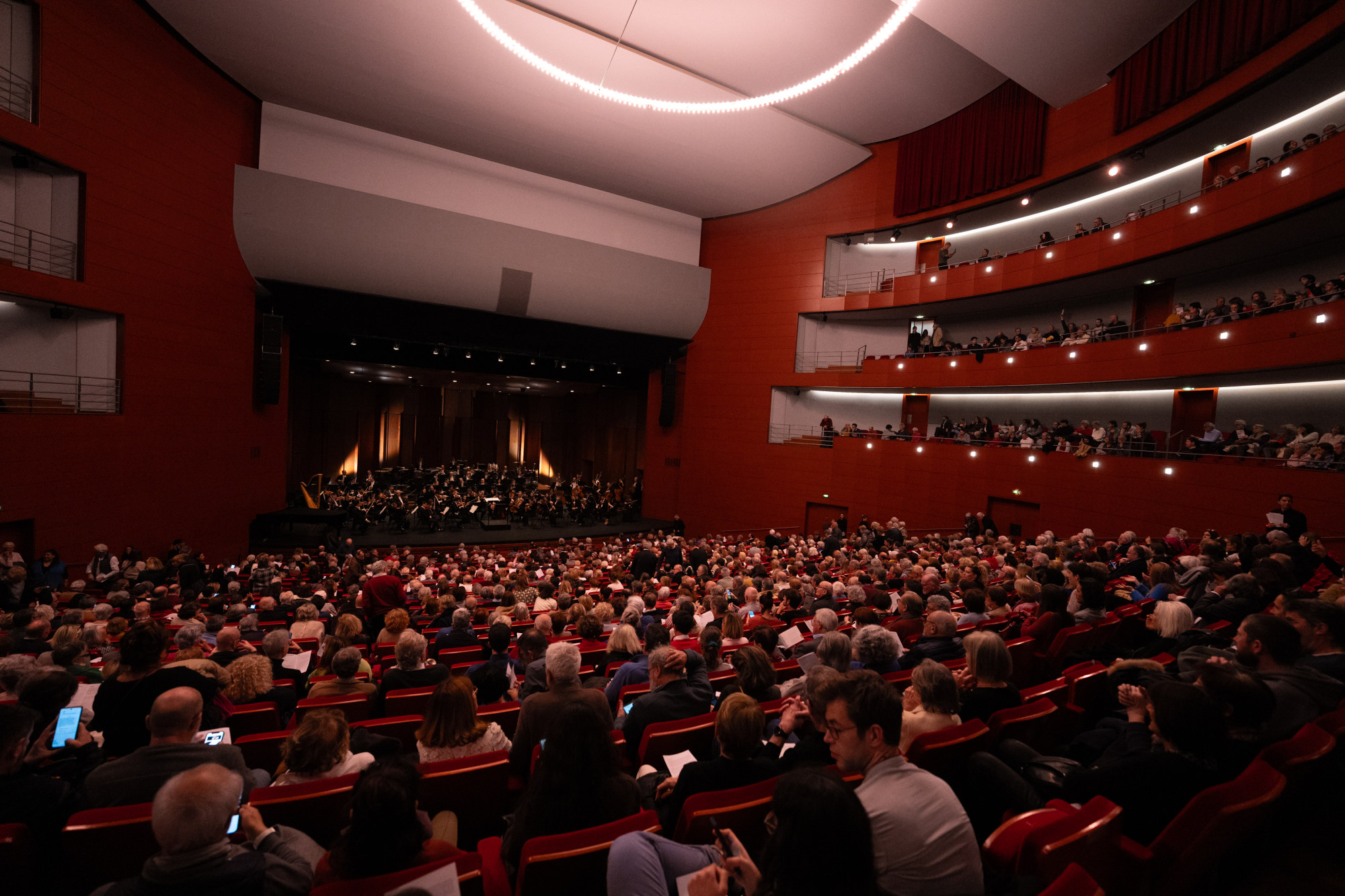
The Classique News reviewer will write, of the Toulouse performance, that “the orchestra, under the able direction of Jaap van Zweden, shines in all its brilliance”; and that Lo’s Asterismal Dance is “brilliant, pleasant, almost easy”.
A question overheard in the lift: “What time do we leave tomorrow and where are we going?” Answer: 9.20am, Aix-en-Provence. The orchestra wheel their cases through the Toulouse backstreets to a line of coaches. (Van Zweden goes by car.) It means at least four hours on the road, sound check on arrival, performance at 8pm.
Preparing her schedule in Hong Kong, Chan had worried about the rigours of this particular day, but after the Lufthansa crisis, it is an easy waltz. Rotterdam (sold out), Basel (quite full), Rome (least full of the entire trip), Brussels (sold out) will follow.
She does a headcount, instrument by instrument, while the drivers have a final smoke.
“Let’s go,” she says.

